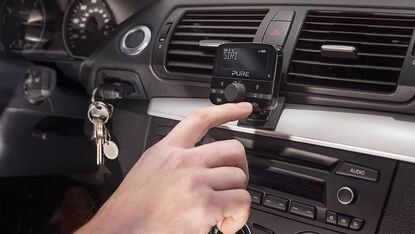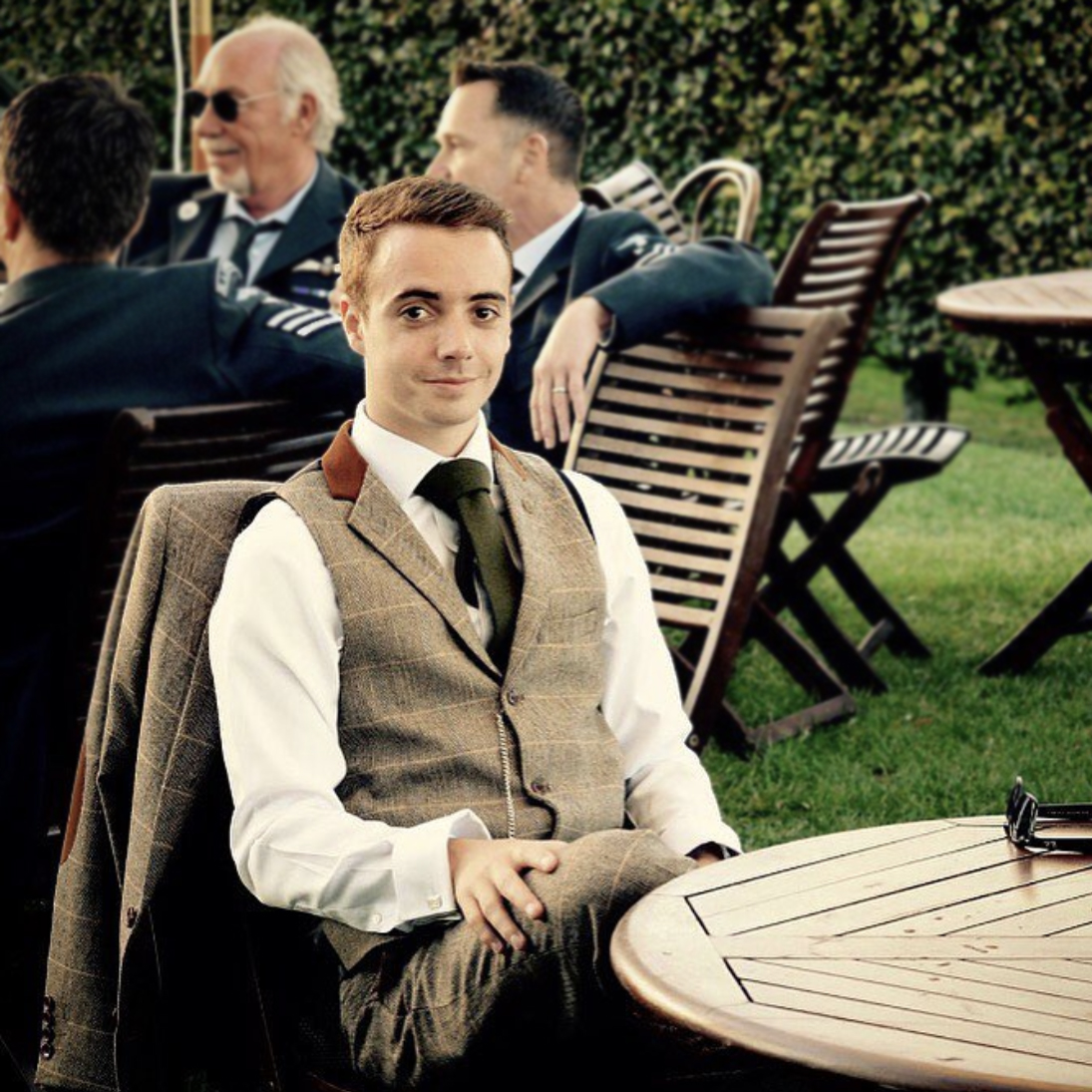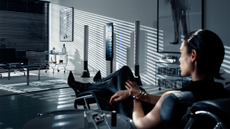In the age of Apple CarPay and Android Auto, wirelessly pairing cars to smartphones and seamlessly streaming audio, it’s easy to forget about how things used to be. Not that long ago, you’d need to pair via Bluetooth, find the right USB port, or even send audio through the car’s 3.5mm auxiliary input.
But what if even the humble aux port isn’t an option? Many older cars lack this connection and, without Bluetooth and USB, they offer no factory-fitted way to connect to a smartphone. Thankfully, help is at hand in the form of a cassette tape or FM radio adapter.
- Best Bluetooth transmitter: stream audio in your home and car
1. Cassette tape adapter
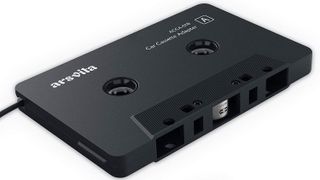
First, the seriously old school approach. These adapters can be bought for under £10 and slot into your car’s tape deck while also connecting to the headphone jack of your smartphone. Naturally, you’ll need a smartphone that still has a headphone socket, or a USB adapter to sit between the phone and the cable running to the cassette adapter.
A slight more high-tech approach is a cassette adapter with Bluetooth. They can be bought for around £15 and connect to your phone via Bluetooth, then slot into the tape deck. This model by Arsvita includes a simple button for playing and pausing music, and accepting and ending calls, like the button on the cable of your headphones.
In both cases, sound is sent from your phone to the cassette, then to your car stereo and outputted from the speakers as if you are listening to a tape, like it’s the Eighties all over again. In the case of the Bluetooth 5.0 Arsvita adapter, an integrated battery produces eight hours of music or call time and 168 hours of standby time. The battery takes 1.5 hours to charge via microUSB.
2. FM radio adapter
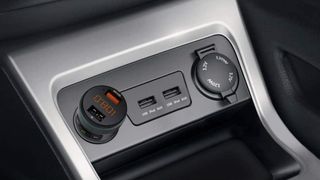
Next up we have the FM radio adapter. These plug into your car’s 12V lighter socket and connect to your smartphone using Bluetooth. Audio (calls, podcasts, music etc) is sent from the phone to the adapter over Bluetooth, then broadcast using an FM radio signal. You then turn your car radio to that frequency, and your phone’s audio comes through the car stereo.
This might sound like a bit of a hack, but it often works surprisingly well, and as long as the speakers of your car are half-decent, music and calls from a connected smartphone sound good.
Some of these adapters can be bought for between £10 and £15, while more expensive versions land at around £20 to £25. Some options are more compact than others, while some have one or two spare USB ports for charging other devices from the same lighter socket, plus buttons and dials for playing or pausing music, taking calls and adjusting the volume. All have a simple display for showing the FM frequency being used, so you can tune your car radio accordingly.
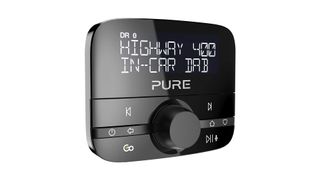
If you have a larger budget and want to access DAB digital radio in a car that lacks connectivity and an aux socket, Pure’s Highway range can help. Priced at around £55, the Pure Highway 400 connects to the 12V lighter socket then hooks up to your phone via Bluetooth and broadcasts an FM frequency for your car radio to connect to.
But it also has DAB radio, so you can tune into digital radio stations directly, instead of streaming them from an app like BBC Sounds on your phone. Mounted to the dashboard and powered by a pair of AAA batteries, this looks almost like a factory-fit device, complete with a simple display and buttons for music and volume control.
Liked this?
- Best dash cam: top car dash cams tried and tested
- Best sat nav: including TomTom, Garmin and more
- Best car accessories: car tech you never knew you needed
